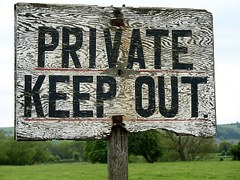Is It Illegal To Record Someones Voice Without Them Knowing It In Maryland?
Yes, it is illegal, and yes, you absolutely can get in trouble for recording someone’s private conversations or utterances without their permission. Maryland law actually punishes this conduct quite severely. The offense is considered a felony, and carries five years and a hefty fine. As Attorney Eric T. Kirk will tell you.
Section 10-402 of the Courts and Judicial Proceedings Article “Interception of communications” provides that it shall be considered a crime to:
Willfully intercept, or attempt to intercept, or ask another to do so, any
- Wire
- oral, or
- electronic communication
The section also treats the use or disclosure, or attempted used or disclosure, and communication that is taken in violation of this law to be equally criminal.
It is legal to record a conversation where everyone consents to it, unless there is some unlawful purpose to the recording.

There are other exceptions. A Defendant who works for a telecommunication company does not necessarily commit felonies simply because a conversation is overheard, intercepted, disclosed, or used in the normal course of business. To conduct any type of formal surveillance, though, a warrant is required. There are also a variety of exceptions related to law enforcement. For example, if there is a hostage crisis, it is not illegal for the officer to intercept a communication where the officer or another participates, and one person has consented to the interception in order to provide evidence of the commission of one of several enumerated crimes. There a variety of other exceptions related to pen registers, trap devices, and other legitimate law enforcement activity. Federal law punishes the same conduct.
Interestingly, although it may well be a crime to record another’s voice without their knowledge, if it is a private conversation, or the utterance is made in a setting where the individual has a reasonable expectation of privacy, it is not typically criminal to record someone’s face, body, actions or other activity when in public, in an area where they have no expectation of privacy, without their knowledge. There are, however, other criminal provisions that may be implicated in this course of conduct.



